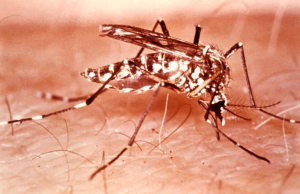NewsDesk @bactiman63
The Health Emergency Response Operations Center (CORUS) informs that 89 cases of chikungunya have been confirmed in Pouytenga in the Center-East region of Burkina Faso by the national viral hemorrhagic fever reference laboratory (LNR/FHV) at the MURAZ center .

“On September 6, 2023, the viral hemorrhagic fever reference laboratory confirmed a case of Chikungunya in a patient from the Pouytenga health district whose sample was taken as part of sentinel surveillance for dengue and other arboviruses. The patient is 30 years old and lives in sector 2 of Pouytenga in the Center East region. The patient has not traveled in the last 14 days. The start date of the signs would be August 19, 2023. She presented with an acute fever with a temperature of 39°C, headache and joint pain.
Autochthonous dengue cases in Europe in 2023 to date
The malaria RDT result was positive. The thick film was negative. The patient was hospitalized and put on treatment. The LNR-FHV received and tested positive for the Chikungunya virus case by RT-PCR,” indicates the CORUS note.
According to the WHO, chikungunya is a viral disease transmitted to humans through the bites of mosquitoes infected with the chikungunya virus. It was first described during an outbreak in southern Tanzania in 1952 and has now been identified in nearly 40 countries in Asia, Africa, Europe and, most recently, the Americas. Symptoms usually begin 4 to 8 days after a mosquito bite but can appear anywhere from 2 to 12 days.
Subscribe to Outbreak News TV on YouTube
The most common symptom is an abrupt onset of fever, often accompanied by joint pain. Other symptoms include muscle pain, headache, nausea, fatigue, and rash. Severe joint pain usually lasts a few days but can persist for months or even years. Serious complications are uncommon, but atypical severe cases can cause long-term symptoms and even death, especially in older people.
- Costa Rica: Health ministry monitors malaria cases in the southwest
- Japanese encephalitis (JE) vaccine: Valneva Announces New IXIARO® Supply Contract with the U.S. Government
- Antibiotic Shows Effectiveness Against Deadly Staph Infections
- New Hampshire reports two Powassan Virus cases, First human Jamestown Canyon Virus case
- Florida: 8 more local dengue cases reported in Miami-Dade County in past week
- Philippines: Dengue cases are up in Zamboanga del Norte
- Cambodia reports 1st Zika virus case since 2016
- Mongolia: Suspect bubonic plague case reported in Zavkhan province, according to media report



Hi everyone I am Emily Naomi wanna give a big thanks to this wonderful psychic for bringing my husband back to me… I never really believed in magic spells or anything spiritual but a trusted friend opened my eyes to the truth about life. My marriage was heading to divorce a few months ago. I was so confused and devastated with no clue or help on how to prevent it, till I was introduced to this psychic Priest Ray that did a love spell and broke every spiritual distraction from my marriage. A day later my husband started showing me love and care even better than it used to be, he’s ready to talk things through and find ways for us to stay happy. It’s such a miracle that my marriage can be saved so quickly without stress. You can also contact him for help by email psychicspellshrine@gmail.com or WhatsApp: +12133525735